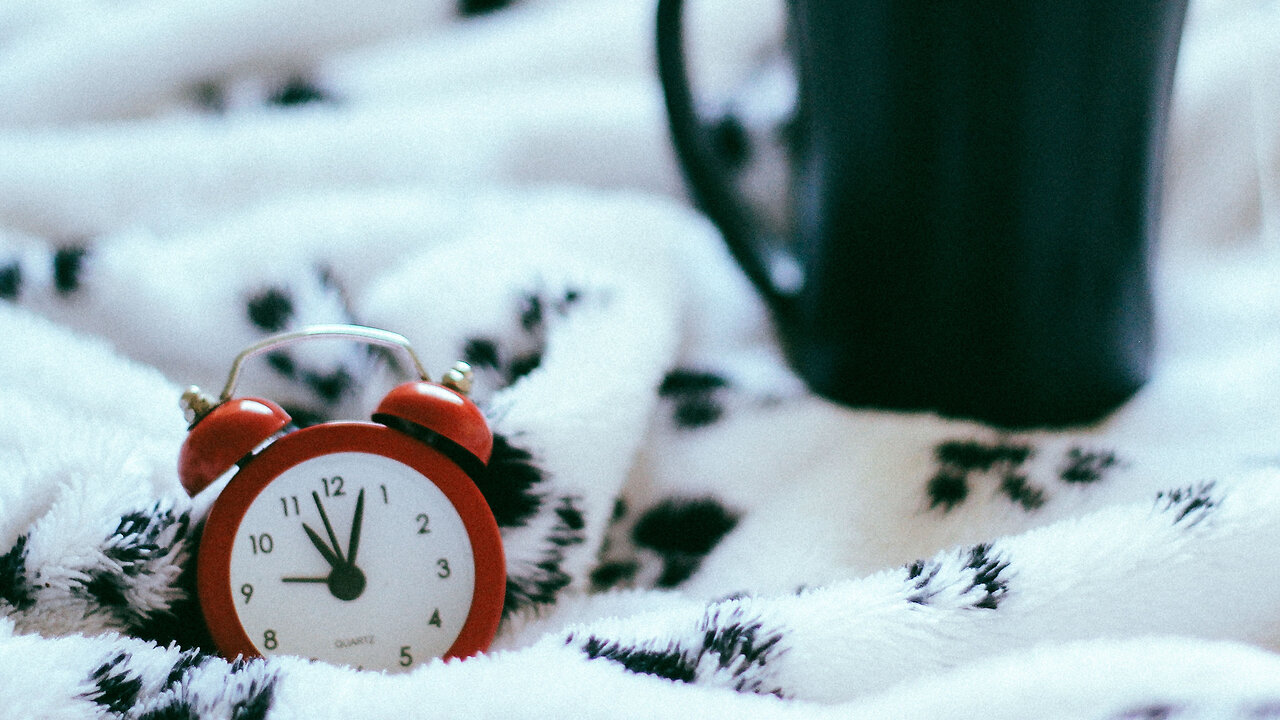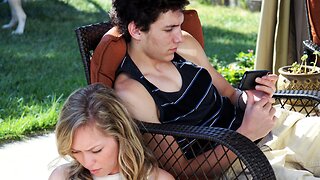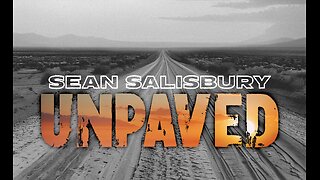Premium Only Content

What are Americans' morning struggles?
Two in five Americans are “bad” at mornings, according to new research.
The survey of 2,000 general population Americans revealed 38% agreed with this sentiment — and respondents get out of bed later than planned an average of eight times per month.
For one in 10 respondents, this happens more than 20 times per month.
When they’re rushing through their morning routine, after staying in bed longer than planned, respondents were most likely to skip eating breakfast (41%).
But others will neglect their personal hygiene: 16% will skip showering, while 11% will go about their day without brushing their teeth.
Commissioned by Avocado Green Mattress and conducted by Talker Research, the survey also looked at respondents’ alarm habits. Less than half (43%) use an alarm to wake up in the morning — and for these respondents, the results revealed their first alarm goes off at 6:33 a.m.
Younger generations were more likely to rely on an alarm: While just a fifth (19%) of baby boomers set an alarm, 63% of Gen Z and millennials do the same.
Across ages, the average alarm user sets two alarms in the morning, and a fifth will hit snooze at least three times before they actually get up out of bed.
The survey also split respondents by early birds and night owls to see how that impacts their alarm habits and their sleep overall. Two-thirds (67%) of early birds who use an alarm said it’s “very effective” at getting them out of bed on time — compared to just half (52%) of night owls.
Early birds were more likely to use a “standard” or preset alarm sound (70% vs. 58%), while night owls were more likely to have an “annoying” sound — like a fire alarm or honking cars — to wake them up (20% vs. 12%).
Unsurprisingly, night owls were more likely to struggle to get out of bed on time (54% vs. 17%). Night owls were also more likely to say their body needs more sleep than they’re currently getting (70% vs. 55%).
That’s despite the two groups getting about the same amount of sleep — right around six and a half hours per night.
“Whether you're a morning person or a night owl, quality sleep is non-negotiable,” said Laura Scott, Director of Brand Marketing at Avocado Green Mattress. “Your natural sleep rhythm should be supported — not disrupted — by an environment designed for deep, restorative rest.”
The top reason Americans aren’t getting enough sleep? Their own worries are keeping them up (51%).
That was followed by a sleep condition (like insomnia, sleep apnea, etc.) (30%) and nightmares or stress dreams (20%).
Also in the top five was an uncomfortable bed or mattress making it more difficult to sleep (19%) and loud noises outside (14%) keeping respondents awake.
While night owls (35%) and early birds (37%) were almost equally likely to struggle to stay asleep, night owls were more likely to face other difficulties.
This included going to bed later than they “should” in the evening (48% vs. 24%), struggling to fall asleep (44% vs. 27%) and staying in bed longer than they “should” in the morning (25% vs. 8%).
“So many of us lie awake at night, our minds racing with worry or stress,” said Scott. “That's why it's so important to create sleep spaces and habits that are calm and supportive — so you can wake up feeling like yourself again.”
Survey methodology:
Talker Research surveyed 2,000 general population Americans; the survey was commissioned by Avocado Green Mattress and administered and conducted online by Talker Research between May 9–15, 2025.
We are sourcing from a non-probability frame and the two main sources we use are:
● Traditional online access panels — where respondents opt-in to take part in online market research for an incentive
● Programmatic — where respondents are online and are given the option to take part in a survey to receive a virtual incentive usually related to the online activity they are engaging in
Those who did not fit the specified sample were terminated from the survey. As the survey is fielded, dynamic online sampling is used, adjusting targeting to achieve the quotas specified as part of the sampling plan.
Regardless of which sources a respondent came from, they were directed to an Online Survey, where the survey was conducted in English; a link to the questionnaire can be shared upon request. Respondents were awarded points for completing the survey. These points have a small cash-equivalent monetary value.
Cells are only reported on for analysis if they have a minimum of 80 respondents, and statistical significance is calculated at the 95% level. Data is not weighted, but quotas and other parameters are put in place to reach the desired sample.
Interviews are excluded from the final analysis if they failed quality-checking measures. This includes:
● Speeders: Respondents who complete the survey in a time that is quicker than one-third of the median length of interview are disqualified as speeders
● Open ends: All verbatim responses (full open-ended questions as well as other please specify options) are checked for inappropriate or irrelevant text
● Bots: Captcha is enabled on surveys, which allows the research team to identify and disqualify bots
● Duplicates: Survey software has “deduping” based on digital fingerprinting, which ensures nobody is allowed to take the survey more than once
It is worth noting that this survey was only available to individuals with internet access, and the results may not be generalizable to those without internet access.
-
 1:10
1:10
SWNS
7 days agoStinky passions lead to arguments in American households
8 -
 LIVE
LIVE
Dr Disrespect
3 hours ago🔴LIVE - DR DISRESPECT - BATTLEFIELD 6 KILL CHALLENGE - VS VISS
1,312 watching -
 11:32
11:32
Sponsored By Jesus Podcast
3 days agoWhat “Speaking the Truth in Love” REALLY Means | Tension of Grace and Truth
10.6K4 -
 29:40
29:40
Paul Barron Network
1 day ago $0.38 earnedCrypto ETFs Launching... Even With Government SHUT DOWN?! 🤯 Grayscale INTERVIEW
7.92K -
 1:12:32
1:12:32
PatriotStreetfighter
22 hours ago10.21.25 Patriot Streetfighter w/ Sam Anthony, Citizen Journalist Platform Exploding!
13K7 -
 40:48
40:48
Sean Unpaved
2 hours agoQB Carnage: Woody's Wrath, Payton's Shade, & Saban's Bold CFB Statement
15.4K -
 2:09:51
2:09:51
Steven Crowder
5 hours agoIs Trump About To Start A War?
353K385 -
 LIVE
LIVE
MattMorseTV
3 hours ago $20.96 earned🔴Senate VOTES to RE-OPEN the GOVERNMENT..? 🔴
1,478 watching -
 1:36:24
1:36:24
The Mel K Show
3 hours agoMORNINGS WITH MEL K - Beware of Those Who Sabotage Peace for Profit - 10-22-25
36.2K7 -
 DVR
DVR
The Shannon Joy Show
3 hours agoThiel Exposed - Breakthrough Cancer Treatments W/ Dr. Makis - Medical Freedom Update W/ Dr. Bowden
23.4K6